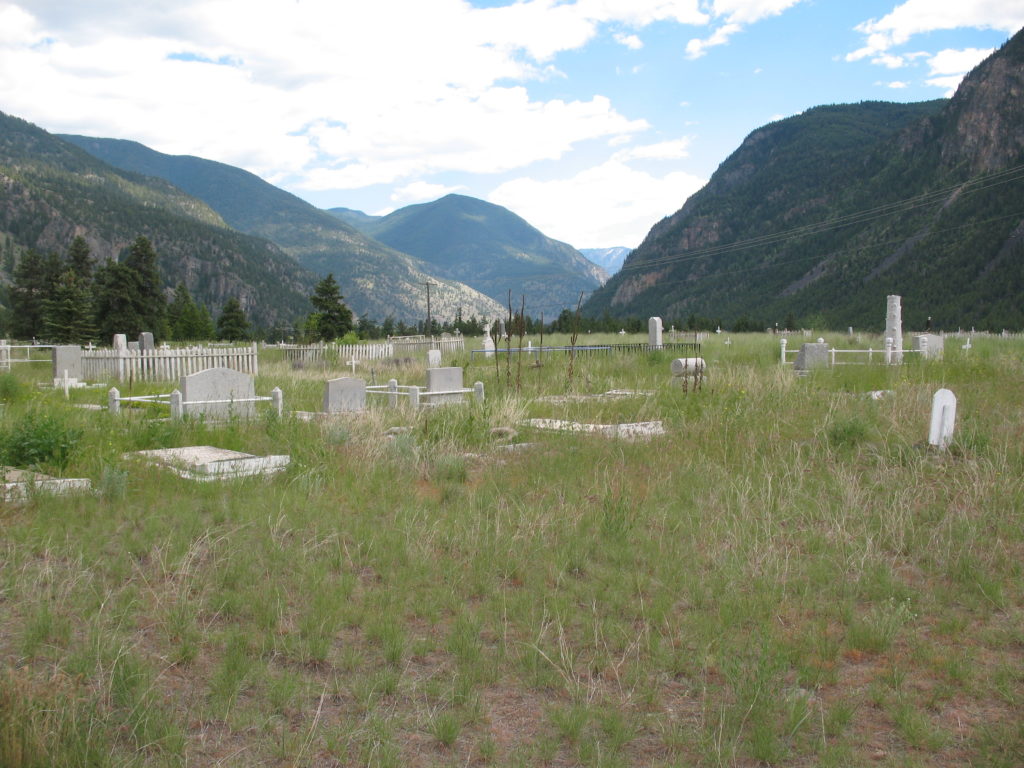Tramping through the high brown grass of the Hedley cemetery with Linda last week, I wondered how the people interred there are being remembered. Did they do something to positively benefit their family and community, even their country? Or did they live only for their own selfish purposes?
In “The Walk”, Paul Evans suggests that “in each of us is something that, for better or worse, wants the world to know we existed.” We have a longing not to be forgotten. We want our life to have meant something, to leave an indelible mark.
It was while working with young offenders in Hedley that I became aware of what I feel is a universal desire. I asked a number of these often intransigent youths if they wanted to do something important with their life. Almost invariably they weighed the question thoughtfully for a long moment. With only one exception, they all said “Yes, I do.”
For some individuals, the need to be remembered becomes an obsession, driving everything they do. Donald Trump is a prime example. The Trump name is emblazoned on his towers. Maybe the inspiration for this comes from the Biblical Tower of Babel. Its creators also feared they would be forgotten.
There are less expensive, less pretentious means of creating a significant legacy. Mother Teresa didn’t need a tower She inspired millions by simply caring for people who could give nothing in return, except their eternal gratitude. By doing something she considered important, she created a legacy of great value to a global audience.
I am impressed by individuals who give with no expectation or even a possibility of recognition or reward. My friend Simon, a high roller former heroin addict and trafficker, had years of jail time in his past. In the final year of his life, he was reduced to delivering pizzas. Sometimes late in the night there were undelivered pizzas at closing time. Simon asked for these and searched the dark streets and alleys for hungry homeless people. He received no reward except the inner knowledge that finally he was doing something for others.
People create legacies in a variety of ways. Bob and Diane Sterne and other citizens of Coalmont have enriched their community by lovingly restoring the nearby Granite Creek Cemetery. Each year the Princeton Traditional Music Festival, spearheaded by Jon Bartlett and Rika Ruebsaat, brings together the Similkameen community in a joyous celebration of music and dance. Jennifer Douglass and Andy English have devoted many hours to historical research, thereby inspiring support for the restoration of the Hedley cenotaph. The Keremeos Community Church blesses local people by operating a soup kitchen each Monday and Thursday. The soup is both nutritious and delicious. Lee McFadyen of Cawston was the first to establish an organic farm in the Similkameen Valley. She is committed to preserving a healthy environment for future generations.
In “A Leader’s Legacy,” James M Kouzes provides an important clue as to how we can be remembered for doing something important. He says, “when we are gone people will not remember us for what we did for ourselves. They’ll remember us for what we did for them.” He adds that “it’s the quality of our relationships that most determines if our legacy will be ephemeral or long lasting.”
In the mid 1980’s a 14 year old boy of indigenous descent was placed in the care of our organization in Hedley. One day, in the midst of some personal turmoil he was experiencing, I invited him to have coffee with me at the Nickle Plate Restaurant. During our conversation I asked if he wanted to do something important with his life. He was somewhat young to understand but when I explained, he quietly said, “yes.” At the end of his time in Hedley he was put on a Greyhound bus for the return to his home. I went to see him off, expecting we might shake hands. As I walked to the rear of the bus where he was already seated, he rose to his feet. Stepping toward me, he threw his thin arms around me. It was a warm embrace I will always treasure. Possibly I had given him a new understanding of who he was and could become.
Paul M Kouzes believes that “by asking ourselves how we want to be remembered, we plant the seeds for living our lives as if they matter.”

